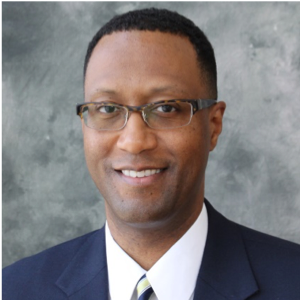
During a recent Association of Schools and Programs of Public Health (ASPPH) Policy & Advocacy Newsletter update, Chief Advocacy Officer, Tony Mazzaschi, notified its members of some great news.1 A significant financial investment had been approved to strengthen the public health workforce. On November 4, 2021, the Subcommittee on Health of the House Energy and Commerce Committee approved H.R. 3297,2 the Public Health Workforce Loan Repayment Act of 2021. It was included among nine bills related to the public’s health.
Introduced by Representatives Crow (D-CO), Eshoo (D-CA), and Guthrie (R-KY), this bill would “establish a student loan repayment program for public health professionals at HHS (Health and Human Services). As a condition of participation, recipients must agree to complete a period of full-time employment with a state, tribal, or local public health agency for at least three years. The legislation authorizes $100 million for fiscal year (FY) 2021 and $75 million for each of the subsequent years from FY 2022-2026.” 3,4,5 Mazzaschi also stated that ASPPH had been a strong supporter of this legislative initiative which included other national health organizations as well as local and state organizations.
This announcement was noteworthy on several levels. At the top, this bill represents a significant financial investment by our country’s leaders in supporting the development of human capital. Historically, those investments seemed to erode over time as critical public health functions have gradually been allocated or played by other players in the health ecosystem. This news also comes at a critical time when our nation’s vulnerabilities from an aging workforce6 can affect our public health infrastructure. That is, we stand to lose many experienced public health professionals whose intellectual capital becomes difficult to replace, especially as those who have long standing tenure in these agencies decide to retire. This action begins to address the question of “Who will take their place?” In my view, this bill will help provide graduates with an important opportunity to serve in public health agencies through an incentive that helps relieve the student debt associated with obtaining a public health education. Graduates in this field often state that money is not the driving factor in selecting this profession, but rather making an impact on the health of the population in communities where they live. Additionally, the bill will help agencies to get an opportunity to build organizational capacity while also fostering opportunities for leadership development in the future.
The timing of the approval of this bill could not come at a better time as we build upon the lessons we learned from a global pandemic. Admittedly, as someone in academic public health, I see many benefits from both the employers’ and the students’ perspectives. I am also reminded of other important legislation, like Title VII of the Public Health Service Act (PHSA),7 which supports a myriad of health professions education and training. These, too, are essential components of maintaining a vibrant workforce in this country. Sometimes, one can easily forget why these mechanisms are in place and what role they play in nurturing the dreams and aspirations of those called to serve in the health professions. Others may call it having the wisdom to build and grow our public health capacity before another imminent crisis. I am inclined to agree.
Author bio:
Karl J. McCleary, PhD, MPH
Dr. McCleary is the Associate Dean for Strategy, Director of the Center for Health Strategy and Innovation, and Professor of Health Policy and Leadership at Loma Linda University School of Public Health. His research interests include health policy; transformation and strategic change; innovation, systems thinking and redesign; and population health.
References:
- Mazzaschi, T. (November 6, 2021). ASPPH Policy and Advocacy Special Edition-House Clears Infrastructure Bill; Rule on Reconciliation (E-newsletter).
- Public Health Workforce Loan Repayment Act of 2021, H.R. 3297, 117th Congress, U.S. House of Representatives (2021). Accessed https://www.congress.gov/bill/117th-congress/house-bill/3297/
- Committee on Energy and Commerce Staff (November 2, 2021). Memorandum from Chairman Pallone to the Subcommittee on Health: Markup of Nine Health Bills. 117th Congress, U.S. House of Representatives. https://energycommerce.house.gov/sites/democrats.energycommerce.house.gov/files/documents/Briefing%20Memo_HE%20Markup_2021.11.04.pdf
- Committee on Energy and Commerce. (November 4, 2021). Markup of 9 Bills, Subcommittee on Health. 117th Congress, U.S. House of Representatives. Accessed https://energycommerce.house.gov/committee-activity/markups/markup-of-9-bills-subcommittee-on-health-november-4-2021
- U.S. House of Representatives Committee Repository (November 4, 2021). Markup of Nine Health Bills: Subcommittee on Health (Committee on Energy and Commerce). Accessed https://docs.house.gov/Committee/Calendar/ByEvent.aspx?EventID=114221
- United States Senate Special Committee on Aging (December 2017). America’s Aging Workforce: Opportunities and Challenges. Accessed https://www.aging.senate.gov/press-releases/senate-aging-committee-releases-report-examining-opportunities-and-challenges-of-americas-aging-workforce.
- Reyes-Akinbileje, B. (2013). Health Workforce Programs in Title VII of the Public Health Service Act, Congressional Research Service, R4317. Accessed https://digital.library.unt.edu/ark:/67531/metadc227902/m1/1/high_res_d/R43177_2013Aug13.pdf

